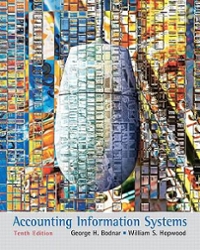Mohammad Hirbawi Q
12-25. An auditor's working papers include the narra- tive description below of the cash receipts and billing portions of the internal control structure of Rural Build- ing Supplies, Inc. Rural is a single-store retailer that sells a variety of tools. garden supplies, lumber, small appli- ances, and electrical fixtures to the public, although about half of Rural's sales are to construction contrac- tors on account. Rural employs 12 salaried sales asso- ciates, a credit manager, three full-time clerical workers, and several part-time cash register clerks and assistant bookkeepers. The full-time clerical workers perform such tasks as cash receipts, billing, and accounting and are adequately bonded. They are referred to in the narrative as "accounts receivable supervisor," "cashier," and "bookkeeper." Narrative Retail customers pay for merchandise by cash or credit card at cash registers when merchandise is purchased. A contractor may purchase merchandise on account if approved by the credit manager based only on the man- ager's familiarity with the contractor's reputation. After credit is approved, the sales associate files a prenum- bered charge form with the accounts receivable (A/R) su- pervisor to set up the receivable. The A/R supervisor independently verifies the pricing and other details on the charge form by reference to a management-authorized price list, corrects any errors. prepares the invoice, and supervises a part-time em- ployee who mails the invoice to the contractor. The A/R supervisor electronically posts the details of the invoice in the A/R subsidiary ledger; simultaneously, the trans- action's details are transmitted to the bookkeeper. The A/R supervisor also prepares a monthly computer- generated A/R subsidiary ledger without a reconciliation with the A/R control account and a monthly report of overdue accounts. The cash receipts functions are performed by the cashier who also supervises the cash register clerks. The cashier opens the mail. compares each check with the enclosed remittance advice, stamps each check "For Deposit Only," and lists checks for deposit. The cashier then gives the remittance advices to the bookkeeper for recording. The cashier deposits the checks daily separate from the daily deposit of cash register receipts. The cashier retains the verified deposit slips to assist in reconciling the monthly bank statements, but forwards to the bookkeeper a copy of the daily cash register sum- mary. The cashier does not have access to the journals or ledgers. The bookkeeper receives the details of transactions from the A/R supervisor and the cashier for journalizing and posting to the general ledger. After recording the remittance advices received from the cashier, the book- keeper electronically transmits the remittance informa- tion to the A/R supervisor for subsidiary ledger updating. The bookkeeper sends monthly statements to contrac- tors with unpaid balances upon receipt of the monthly report of overdue balances from the A/R supervisor. The bookkeeper authorizes the A/R supervisor to write off ac- counts as uncollectible when six months have passed since the initial overdue notice was sent. At this time, the credit manager is notified by the bookkeeper not to grant additional credit to that contractor. Required Based only on the information in the narrative, describe the internal control weaknesses in Rural's internal con- trol structure concerning the cash receipts and billing functions. Organize the weaknesses by employee job function: Credit manager, A/R supervisor, Cashier, and Bookkeeper. Do not describe how to correct the weak- nesses. (CPA adapted) Scanned with CamScanner







